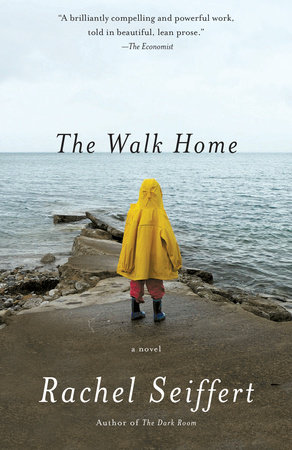The Walk Home Reader’s Guide
By Rachel Seiffert


1. Describe the relationship between Stevie’s parents, Lindsey and Graham. Why does she leave Ireland for him? Why does she eventually leave Scotland too? What is she running away from? Do you think she’ll ever find peace?
2. How is The Walk Home a story of reinvention? Who tries to reinvent themselves and why? Do they succeed?
3. Are any of the characters free of guilt? How does both family guilt and religious guilt play into the novel?
4. The Walk Home is set against the sectarian and cultural divisions and hatred of Northern Ireland and Scotland in the 1990s that are, years later, still reeling from the Troubles of the 1960s. How does religion affect the characters, even those that aren’t religious?
5. Why does Graham play his flute in the annual Protestant Orange Walk despite pressure from his wife and mother? Why don’t they want him to participate?
6. What does playing and practicing with the band give Graham that he doesn’t seem to have from anything else? How does it ultimately rip apart his family?
7. Why does the relationship between Graham and Lindsey dissolve? What do you think kept them together up to that point?
8. Why does Stevie run away from home and stay away for so long? What is he running away from and to what or where is he running?
9. What do you think home represents for each of the characters? Family? Love? Safety? Shared history?
10. What does the title mean to you? What do you think it means to Stevie, to Lindsey, to Eric, to Graham, and to the Polish workers?
11. The Economist says of The Walk Home, “This is a book about people who say very little.” Why do Graham and Stevie not say much? Why does Lindsey chat more with Eric and her mother-in-law than with her husband?
12. Describe Lindsey and Eric’s relationship. What binds them together? Why does Lindsey ultimately feel betrayed by Eric?
13. Does Lindsey trust anyone? Does Stevie?
14. Why do you think the author compares a working-class Scottish family with the community of Polish contractors who are in Scotland with little family or cultural connections? What do they represent in the novel?
15. Discuss the themes of violence and betrayal in this work. How does violence, both physical and mental, play into the story?
16. What do we learn about Graham’s grandfather, Papa Robert? How has his large personality (“He was a force tae be reckoned with”) loomed over and haunted the family even after his death?
17. How is Eric different from the other men in the novel? “He’d taken a lonely path, and it had undone him”.
18. “Now he was no longer so angry, perhaps he could feel it as his father had”. Eric tries to forgive and explain his father to Lindsey, but it backfires. Why?
19. Is the Drumchapel neighborhood of Glasglow, as described here, similar to any neighborhood you know of? How and why?
20. Do you think the ending is hopeful? And do you think Stevie will finally feel like he belongs?
Just for joining you’ll get personalized recommendations on your dashboard daily and features only for members.
Find Out More Join Now Sign In